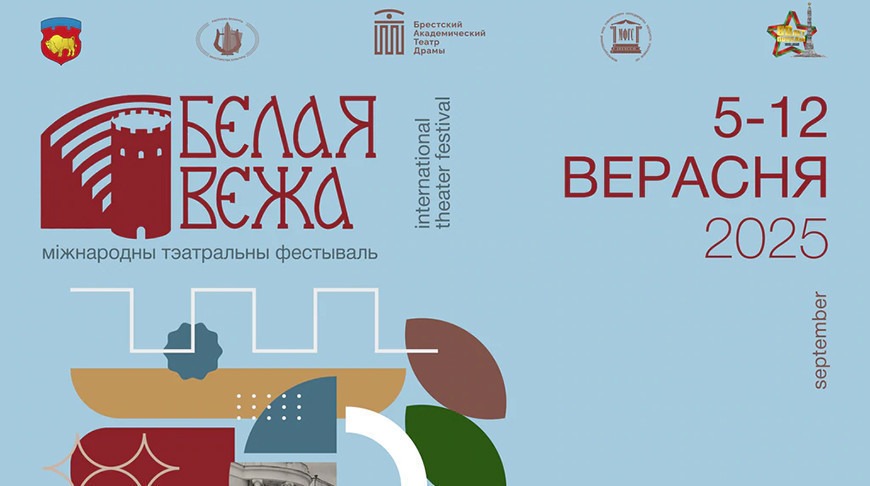The city of Brest is set to welcome theater lovers and cultural enthusiasts from across Eurasia as it hosts the 29th edition of the Belaya Vezha International Theater Festival from 5 to 12 September 2025. One of the most celebrated theatrical events in the region, the festival will transform Brest into a vibrant cultural hub for a full week.
32 Performances from Six Countries Across Five Languages
This year’s edition will feature 32 productions by 32 acclaimed theater groups representing Armenia, Belarus, Kazakhstan, Kyrgyzstan, Russia, and Tajikistan. Belarusian theater will have a strong presence, with performances by troupes from Minsk, Mogilev, Gomel, Bobruisk, and Brest.
In a celebration of artistic diversity, the festival will showcase performances in Belarusian, Russian, Armenian, Tatar, and Kazakh, offering multi-genre theatrical experiences ranging from classical drama and interactive comedy to mystical thrillers, musical fairy tales, and electro-platform noir.
A Cultural Tribute to Heroism and History:
The 2025 edition holds special significance as it aligns with the 80th anniversary of Victory in the Great Patriotic War. Festival organizers have announced that the programming will pay homage to the enduring spirit and heroism of the people who fought to preserve their nation’s independence.
Diverse Line-Up of Theater Styles:
The extensive lineup includes:
- 20 drama theater productions
- 6 puppet theater performances
- 3 musical and musical-plastic performances
- Interactive comedies and solo acts
This curated mix ensures that audiences of all ages and cultural backgrounds will find performances that resonate with their tastes and interests.
Organizers and Support:
The Belaya Vezha Theater Festival 2025 is organized by the Brest Oblast Executive Committee, the Ministry of Culture of Belarus, and the Brest Academic Drama Theater. Their collaborative efforts aim to elevate Belarus’ profile as a center for cultural diplomacy and performing arts in Eastern Europe.
Source: Belta


